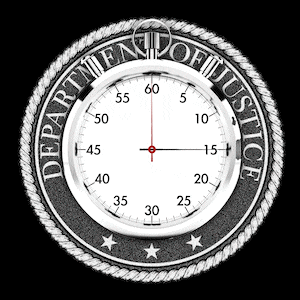U.S. District Judge Aileen Cannon has ruled in favor of one of former President Donald Trump’s special master picks, appointing Raymond Dearie to review the trove of documents seized by the FBI at Trump’s Mar-a-Lago home.
The Florida judge also denied the Department of Justice’s motion for a partial stay to allow DOJ continued access to at least 100 documents marked classified.
“The Court remains firmly of the view that appointment of a special master to conduct a review of the seized materials, accompanied by a temporary injunction to avoid unwarranted use and disclosure of potentially privileged and/or personal materials, is fully consonant with the foregoing principles and with the need to ensure at least the appearance of fairness and integrity under unprecedented circumstances,” Judge Cannon, who was appointed by Trump, writes.
Last month, Trump’s team asked that an independent third party be placed in charge of reviewing the 11,000 seized documents to ascertain whether any were protected by executive privilege or attorney-client privilege when removed in the Aug. 8 search.
The Justice Department opposed the request, but when Judge Cannon ruled in favor of a special master, it agreed to Trump’s pick, 78-year-old Dearie, as an appropriate choice.
Judge Dearie is a former U.S. attorney for the Eastern District of New York and served as chief judge of the court from 2007 to 2011. He was appointed as a judge by Ronald Reagan in 1986.
He previously approved a warrant for the FBI to surveil former Trump campaign aide Carter Page during the Russia investigation, though he is understood to have a stellar reputation and is highly regarded by Trump and his team.
Cannon gave the special master a Nov. 30 deadline to finish his review of the potentially privileged documents, which is more than a month after the DOJ’s request for an Oct. 17 deadline. She noted that date was “subject to modification if necessary as proposed by the special master.”
The extended deadline is likely to be a setback for the DOJ’s investigation into whether the former president unlawfully kept national defense records or hindered repeated attempts by the government to retrieve them.
The Justice Department has indicated it will appeal, which could see the case taken to the United States Court of Appeals for the Eleventh Circuit and as high as the U.S. Supreme Court. According to The New York Times, “top officials” were meeting Thursday night “to discuss the timing of their filing.”
In her 10-page ruling, Judge Cannon questioned the DOJ’s claims that the records it is attempting to review—in particular, 100 documents “marked as classified”—contain such urgent sensitive information that could place the country in peril and requests further review from the special master.
She said “there has been no actual suggestion by the Government of any identifiable emergency or imminent disclosure of classified information arising from Plaintiff’s [Trump’s] allegedly unlawful retention of the seized property.”
Instead, and “unfortunately” she said, “the unwarranted disclosures that float in the background have been leaks to the media after the underlying seizure.”
Cannon denied the DOJ’s request to exempt the 100 documents from the review and to lift restrictions on DOJ from using the classified materials seized during the search to further its criminal investigation into the handling of sensitive documents at Mar-a-Lago.
She said she would not accept the DOJ’s brief that the documents remain classified as fact without a review from the special master and asked that he prioritize them first and “thereafter consider prompt adjustments to the Court’s Orders as necessary.”
The temporary ban, however, “does not restrict the Government from conducting investigations or bringing charges based on anything other than the actual content of the seized materials; from questioning witnesses and obtaining other information about the movement and storage of seized materials, including documents marked as classified, without discussion of their contents.”
Trump has asserted publicly that he declassified all the records before the FBI search.
“The Court does not find it appropriate to accept the Government’s conclusions on these important and disputed issues without further review by a neutral third party in an expedited and orderly fashion,” Cannon writes, noting “there are documented instances giving rise to concerns about the Government’s ability to properly categorize and screen materials.”
Cannon’s order appointing a special master says Trump must pay the full cost of the review, despite a previous plea from his lawyers to split the bill. “Plaintiff shall bear 100% of the professional fees and expenses of the special master and any professionals, support staff, and expert consultants engaged at the special master’s request,” the order reads.
She also said both parties “must fully cooperate with the Special Master in the performance of their duties but the court “reserves the right to remove the special master.”
Dearie has already accepted the role in a signed filing.
On Thursday, Trump warned of “big problems” if he was indicted over the mishandling of the documents, warning conservative radio host Hugh Hewitt that there would be “problems in this country the likes of which perhaps we’ve never seen before.”
“I don’t think the people of the United States would stand for it,” he said.








